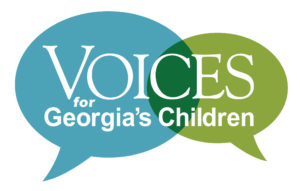The mental health needs of many Georgia children are not being addressed, primarily because of a lack of professionals to treat them, according to a report released Monday.
The report from Voices for Georgia’s Children cites a “severe shortage’’ of child and adolescent psychiatrists statewide. It also reported that 76 of the state’s 159 counties do not have a licensed psychologist in 2015, and that 52 counties did not have a licensed social worker.
The shortage of qualified mental health providers is statewide, but “is exacerbated outside of metro Atlanta and in rural areas,’’ said Erica Sitkoff, executive director of Voices for Georgia’s Children, an advocacy group.
Those gaps help lead to many youths not getting needed behavioral health assessments, the report said, adding that two-thirds of Georgia youth with major depression do not receive adequate mental health services.
The most tragic consequence is suicide, which has a devastating impact in the state. The report said suicide is the second-leading cause of death for children ages 15 to 19, and the third for children ages 10 to 14.

The GBI has reported youth suicide is on the rise in the state, based on statistics from its Child Fatality Review Unit.
The report also said that when surveyed, more than 80,000 sixth through twelfth graders in Georgia said they have seriously considered harming themselves on purpose in the last year.

The Voices for Georgia’s Children report recommends expansion of training programs for child and adolescent mental health professionals, including psychiatrists, psychologists and master’s level practitioners.
“We don’t have enough post-degree training programs,’’ Sitkoff told GHN on Monday.
She added that many children with mental health issues receive medication, but not the therapy needed to deal with these problems.
“Clearly, Georgia’s behavioral health workforce must be strengthened if the state hopes to generate more positive child behavioral outcomes,” the report added.
Deal’s ‘unprecedented investment’
This month, Gov. Nathan Deal, in his new proposed budget, recognized the need for more children’s mental health services.

Deal proposed $22.9 million in new funding. It would go for crisis services, therapeutic foster care, Apex grants, telehealth services, suicide prevention, wraparound services, supported employment and education, and opioid prevention and treatment to provide comprehensive support to Georgia’s youth in crisis.
The APEX program, which aims to increase access to mental health services for school-aged youth, “is a significant success,” Sitkoff said. She called the Deal budget request “an unprecedented investment.”
The new funding, if approved by the Legislature, ‘’will help tremendously,’’ she said. “It has been a starved system for many years. It gives us a great starting point. Now we need to have a parallel program for workforce.”
Pediatric mental health providers in the field tend to be significantly underpaid compared to industry standards, the report said.
Georgia ranked 43rd out of 50 states on Access to Care measures in a report by Mental Health America.

The lack of mental health providers for adults in rural areas is bad enough, “but it’s critically worse for pediatrics,’’ said Jimmy Lewis of HomeTown Health, an association of rural hospitals in the state.
Child and adolescent psychiatrists, psychologists and psychiatric nurses have few education and post-graduate training opportunities in Georgia, the report said. This can make the path to licensure for these providers difficult and can discourage graduates from remaining in Georgia.
“The pediatricians have stepped up, but they can’t do it alone,” Sitkoff said.
Deal based his funding request on the work of a state commission on children’s mental health, which recently issued recommendation for improving kids’ services.
A co-chair of that commission, Judy Fitzgerald, commissioner of the Department of Behavioral Health and Developmental Disabilities, said in a statement that the Voices report “is a timely asset. It has the potential to impact not only current efforts to recruit, educate, and train Georgia’s workforce, but can touch child well-being for generations to come.”
Sue Smith of the Georgia Parent Support Network said the Voices report “is comprehensive, well researched and while clearly underscoring the severe workforce shortage for the full spectrum of behavioral health services, it builds a foundation and structure that if implemented would go a long way toward solving Georgia’s critical workforce shortages.”

